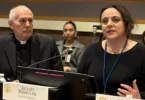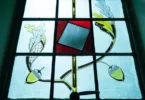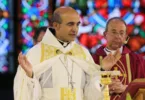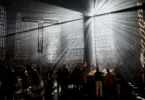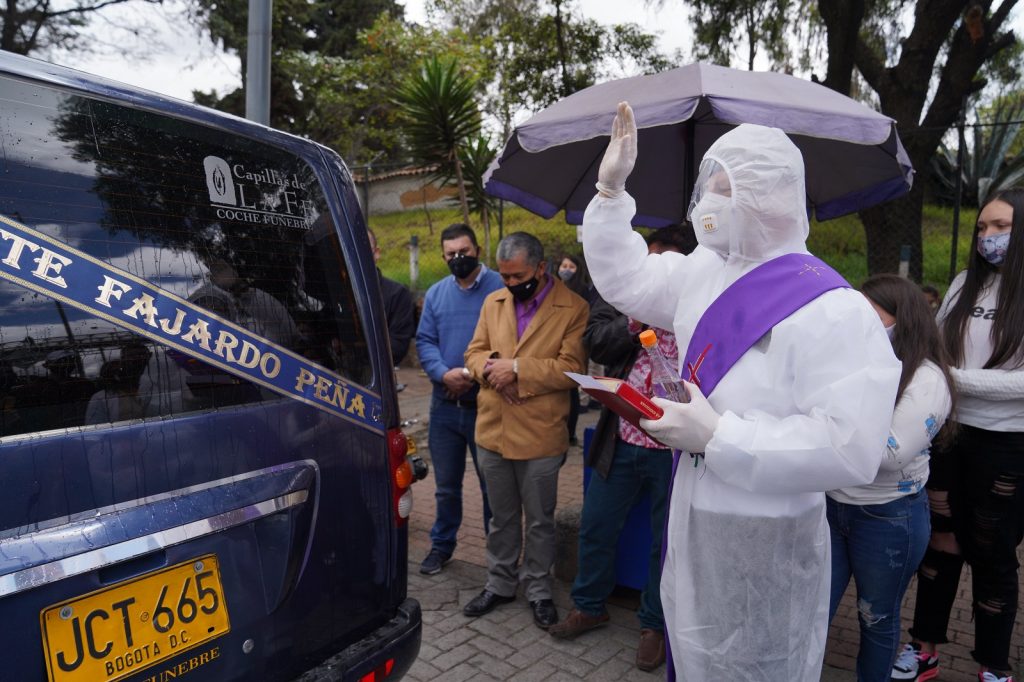
by Manuel Rueda
BOGOTA, Colombia (CNS) — Deacon Mauricio Castiblanco used to spend most of his day traveling to funeral homes around the city, where he blessed families who recently lost a loved one.
But over the past two months, he has been spending much more time outside cemeteries, dressed in a face mask, disposable white overalls and a purple sash decorated with a cross. His mission is to conduct roadside funeral services for victims of COVID-19.
“This is a traumatic way to say goodbye to a loved one,” the deacon said recently as he prepared for a service outside Apogee Cemetery, in Bogota’s working class district of Bosa. Trucks and buses roared by the cemetery’s entrance, next to a major highway.
“It’s difficult,” the deacon said. “But as the church we have to be here to help people and accompany them in their grief.”
The pandemic has changed how burials work in Colombia, especially for people who die from COVID-19.
According to government regulations, coronavirus victims must be taken straight from the hospital to the cemetery in a closed casket, without their families allowed to see the body.
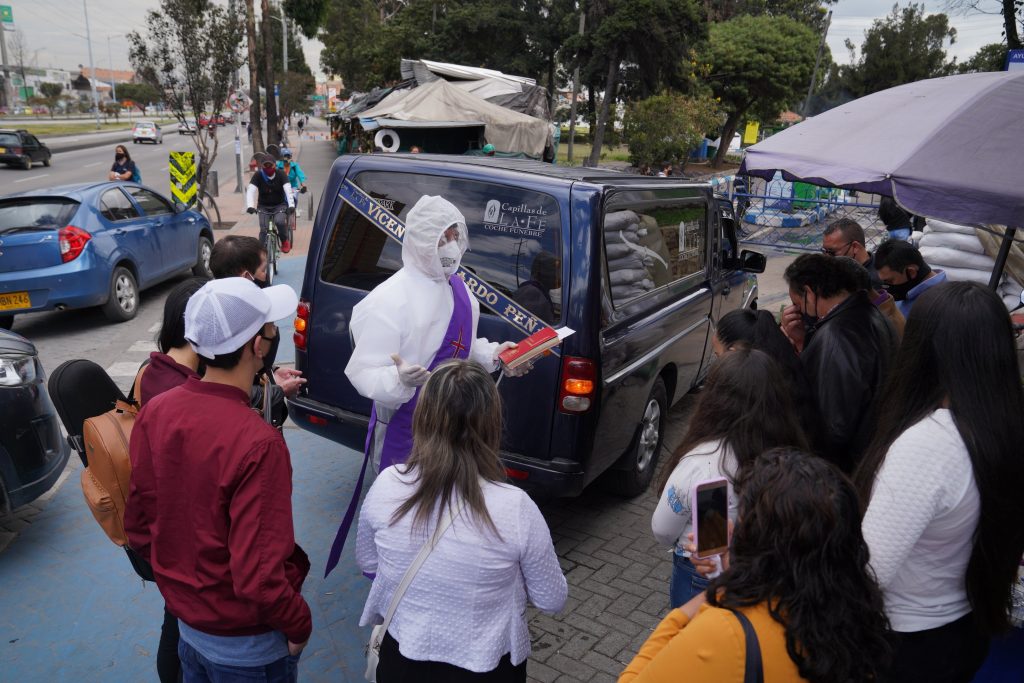
Wakes at funeral homes are strictly banned for victims of the virus; churches are closed, and families aren’t allowed to go into cemeteries, either. Instead, relatives of coronavirus victims must pay their last respects outside cemeteries and watch as a hearse drives past the gates alone, carrying the body of their loved one.
In a bid to make the funerals of coronavirus victims more humane, Deacon Castiblanco and five more deacons who work with a local funeral company have devised services outside cemeteries, where they pray with victim’s relatives, read passages of the Bible and attempt to give coronavirus victims a proper send-off.
The demand for these roadside services has grown considerably over the past two months, said Deacon Castiblanco, who has done up to 14 services in one day outside cemeteries in Bogota.
The service begins when the hearse arrives at the cemetery gates, followed by cars carrying family and friends.
The faithful huddle in their face masks around Deacon Castiblanco, who picks up his funeral rites book, starts the ceremony and sprinkles the hearse with holy water.
During a recent service for Vicente Fajardo, a 73-year-old man who was suspected of dying from the virus, Deacon Castiblanco urged relatives to communicate more with their loved ones in life and “not hold anything back.”
The deacon also said that Fajardo would “continue to live” in his relatives’ hearts as long as they remembered him. Fajardo’s brother — who did not want his name published — said he found the service comforting, even though he felt outraged over the policy of not letting relatives see the bodies of their loved ones.
Deacon Castiblanco said the services aim to give people “strength” in these difficult times and make them feel like the church is there to support them.
But being constantly around relatives of COVID-19 victims is also risky for the deacon, which explains his unusual attire.
The deacon wears a new disposable suit each day and carries disinfectants, gel, and a plastic face shield that protects his eyes. He takes a shower immediately upon returning home, before greeting his wife and kids.
“My wife was terrified when I started to do this,” Deacon Castiblanco said. “But she has also been very supportive.”
With coronavirus infections still widespread in Colombia, Deacon Castiblanco could still have months of outside services ahead of him.
Every day, Colombia’s government is reporting more than 8,000 new cases of the virus and around 300 deaths, with about a third of these occurring in the capital city.
Deacon Castiblanco said he will continue to offer the roadside services while there’s a need for them.
“We have to give people hope,” he said. “This virus is not going to go away overnight. And we will have to learn to live with it.”
Copyright ©2020 Catholic News Service / U.S. Conference of Catholic Bishops.


